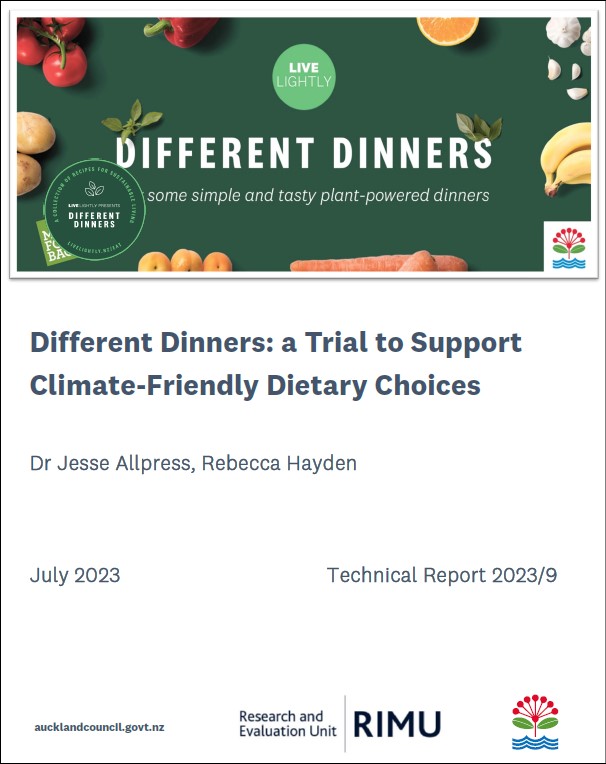Different dinners: a trial to support climate-friendly dietary choices
Author:
Jesse Allpress, Rebecca HaydenSource:
Auckland Council Research and Evaluation Unit, RIMU | Environmental ServicesPublication date:
2023Topics:
EnvironmentExtract from the Executive summary
The purpose of the trial was to further our understanding of the types of interventions that work to support willing Aucklanders to make food choices that have a lower carbon impact.
Food consumption is a fertile area for potential emissions reductions. Stats NZ report that food and non-alcoholic beverages represent a large contributor to household consumption emissions (around 25% of New Zealanders’ carbon footprint). The contribution of food and non-alcoholic beverages is second only to transport. There is strong evidence that increasing plant-based food choices leads to carbon emission reductions, as well as health and wellbeing benefits.
A significant amount of research has informed the development of this trial. In 2021, following the completion of Te Tāruke-ā-Tāwhiri, Auckland Council’s Climate Action Solutions team undertook a Sustainable Healthy Food Choices Research and Development Project in order to better understand how to support willing Aucklanders to make small changes toward choosing vegetarian dinners one or two more times per week.
The research found that dietary practices are complex, influenced by a mixture of factors including culture, taste preferences, cost, variety, convenience, and health. That study made several recommendations that were picked up in the design of this trial. They included:
- Focus on tastiness of non-meat options rather than environmental benefits.
- Make it easier to try alternatives to frequently eaten meals.
- Address unfamiliarity aversion and knowledge gap.
- Create new habits.
The behavioural insights gained from that research informed the development of the Different Dinners trial. ..
Auckland Council technical report, TR2023/9
July 2023
See also
Sustainable, healthy food choices research and development project. Primary research summary report
